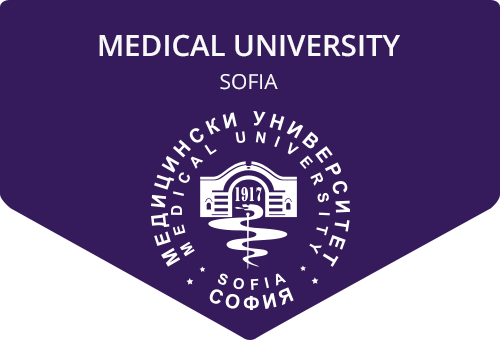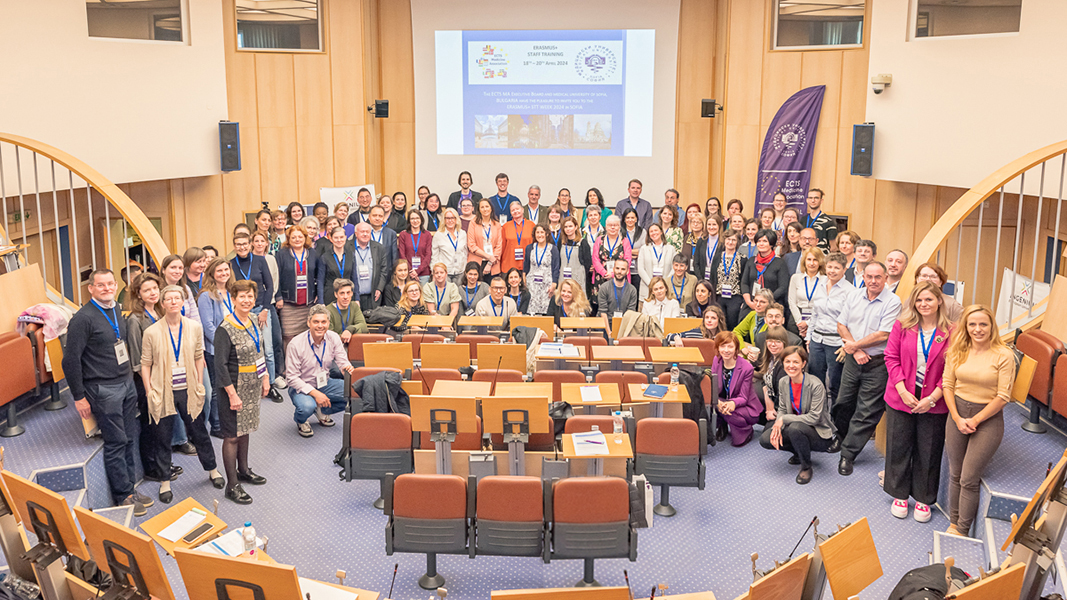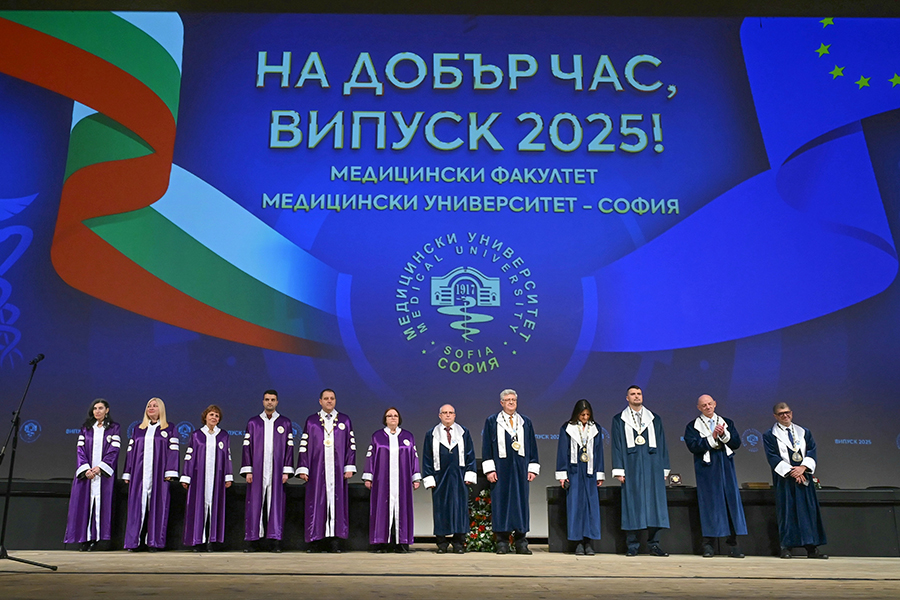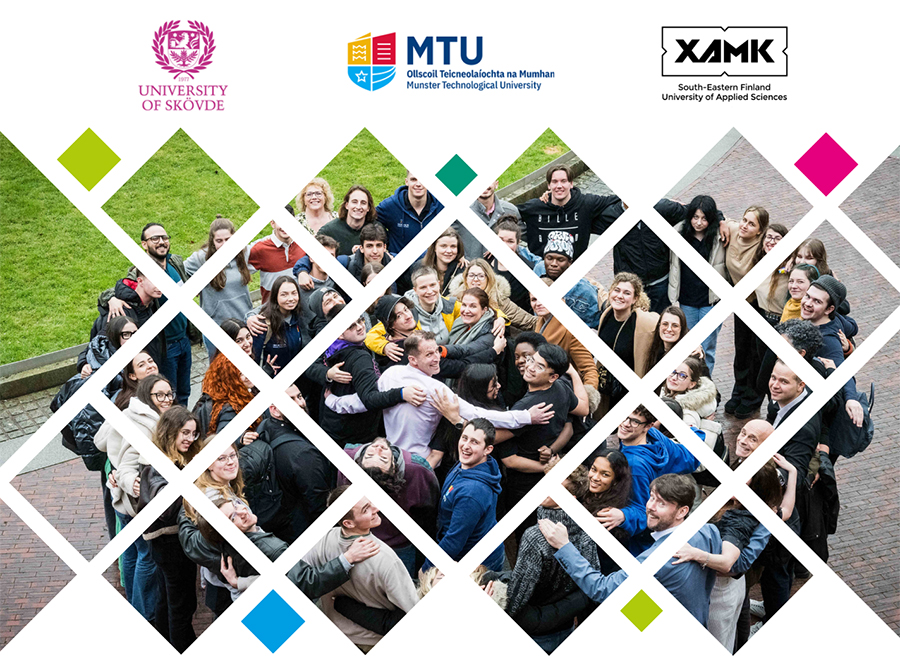Medical University – Sofia hosted the annual meeting of the European Association of Medical Faculties (ECTS Medicine Association – линк), which took place on April 18-20th, 2024. The event brought together nearly 100 delegates from 53 leading medical universities and faculties from the EU, Switzerland and the European Economic Area.
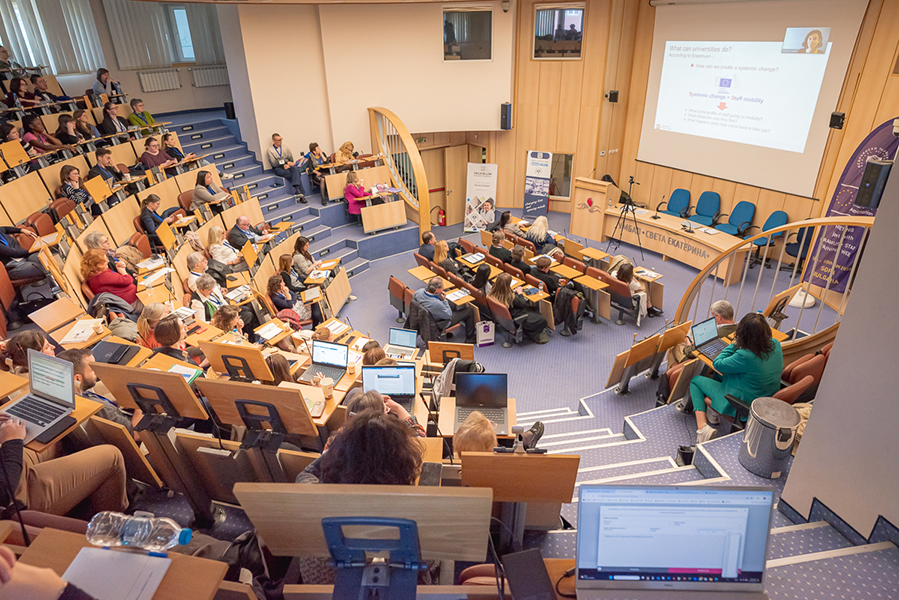
The rector, Prof. Dr. Boycho Lanzhov, welcomed the delegates to Sofia and to Medical University-Sofia, sharing the importance of mobility for the university: ‘Our tradition in education is already more than a century old and we maintain it, while at the same time we are constantly developing and modernizing. A key part of this modernization is our participation in international networks, exchange of experience and increased mobility of students and academic staff’. The rector emphasized that the ECTS MA membership has a significant contribution to MU-Sofia developing as a good partner in international projects and collaborations.
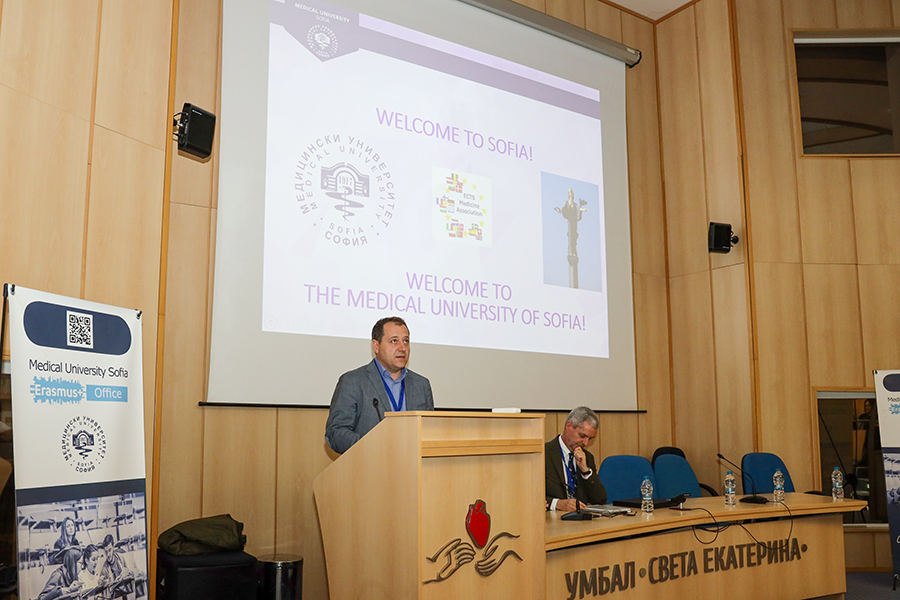
This was followed by a welcome from Iliana Ivanova, European Commissioner for Innovation, Research, Culture, Education and Youth, who shared about the new EC initiative – European Degree.
‘On March 27th, The EC adopted Blueprint for European degree. This package creates new groundbreaking possibilities for students to obtain a truly European degree through studies at higher education institutions across different countries. The degree complements our Europe on the Move proposal from Nov 2023 and reinforces the integration of learning mobility into all facets of education and training. This is a mission we share with the ECTS MA and that is why your work in developing and constantly improving the European transfer system is so crucial.’
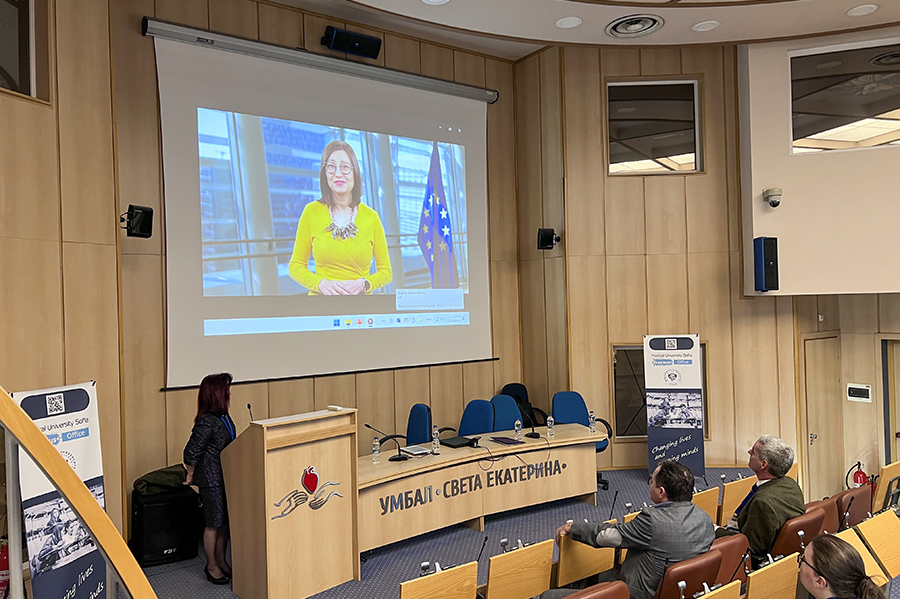
The chairman of ECTS MA – Prof. Juan Arguelles from the University of Oviedo, Spain greeted the delegates and outlined the priority innovations and tasks for the Erasmus+ program for 2024. Among them are encouraging the use of “green transport” for mobilities, commitment to European values and continued support for Ukraine. He recalled that the annual budget of the program for the current year is 4.3 billion euros to support mobility and cooperation. Prof. Arguelles also presented the new platform that is being developed to connect all educational institutions that offer mobility under the program and all students who are looking for it.
He thanked MU-Sofia and the team of Erasmus+ coordinators for organizing the large-scale event and wished all participants to use the meeting to create new partnerships and get the most out of the presentations and workshops during the forum.
The Vice-Rector of MU-Sofia for International Integration and Project Financing Art.-cor. Prof. Dr. Tsvetalina Tankova, PhD presented Medical University-Sofia as a host and partner in the association, telling more about the project activity and the mobilities realized by the university.
Topics related to medical curricula were discussed – “Longitudinal Curriculum” by Eliana Lemnos (RWTH Aachen, Germany) and ‘From Mythology in(to) Medicine’ by Dr. Vasilka Nikolova, PhD, MA Arts. A presentation on the topic of internationalization at home – non-traveling students and teachers, was given by Marina Casals Sala (Universitat Rovira i Virgili, Spain), who participated online, and Jerneja Čelofiga (University of Ljubljana, Slovenia), who was in the room.
Workshops were held that discussed approaches to increase mobility such as ‘Opportunities to apply for Erasmus+ projects’ led by Panar Topsever (Acibadem University, Turkey) and Prof. Juan Arguelles (Universidad de Oviedo, Spain) and ‘Improving language skills’, Mario Antonio Martelli (Alma Mater Bologna, Italy), Nicole Dourado (University of Coimbra, Portugal).
The Bulgarian participation was a presentation by Magdalena Kasnakova on the topic: ‘Medical University – Sofia’s journey through the capacity building to support upskilling and reinforcing academic expertise – BI4E & INGENIUM projects’.
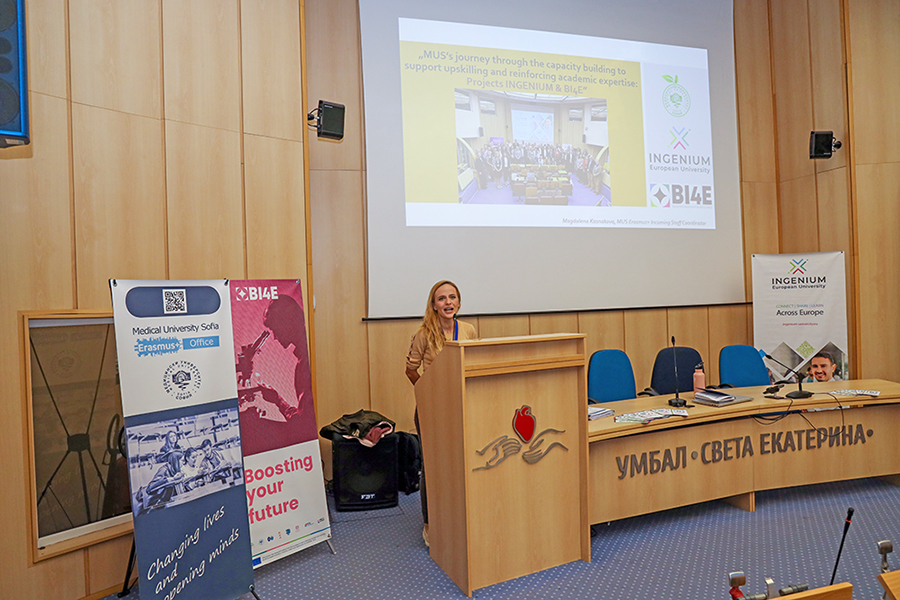
A round table was also held to share personal impressions of Erasmus+ mobilities of students with moderators Marina Stark (Ruprecht-Karls-Universität Heidelberg, Germany) and Yanitsa Docheva (MU-Sofia). Presentation on the sensitive topic “The reason why you send students on exchange? – Medical students’ attitudes towards racism in medicine and healthcare in Germany” was presented by Simon Gerhards (Carl von Ossietzky Universität Oldenburg, Germany).
On the last day of the forum, new ECTS MA members were admitted during the General Assembly: University of Augsburg, Germany, University of Paris – Cité, France, Medical University of Poznan, Poland, Catholic University of Valencia, Spain and Uppsala University, Sweden.The three-day event ended with a cultural program, including a visit to the National History Museum and the Boyana Church.
